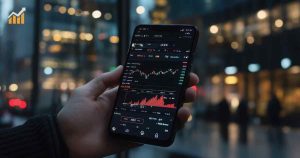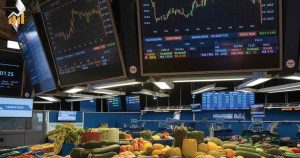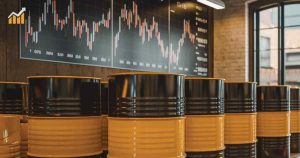Online trading is steadily transforming Pakistan’s economy, becoming an essential part of its financial landscape. With the rise of digital platforms and increasing internet accessibility, online trading has opened new doors for investors while boosting economic growth. From providing access to global markets to encouraging financial inclusion, online trading is reshaping how Pakistan engages with modern investment opportunities.
How Online Trading is Revolutionizing Pakistan’s Economy
Online trading is not just a trend; it’s a driving force behind the evolving economic framework in Pakistan. The following sections highlight its growing impact.
Accessibility to Financial Markets
Online trading platforms like PMEX (Pakistan Mercantile Exchange) have made it easier than ever for Pakistanis to participate in the financial markets. Investors can now trade stocks, commodities, and currencies directly from the comfort of their homes. This accessibility significantly reduces barriers to entry, allowing individuals from all regions to join the investment ecosystem.
Financial Inclusion Through Online Trading
One of the most notable benefits of online trading in Pakistan is its role in fostering financial inclusion. Previously, trading opportunities were limited to specific demographics, such as corporate investors or those residing in major cities. Online platforms democratize participation, enabling even small-scale investors to build financial portfolios, thus creating a broader and more inclusive economy.
Contribution to Economic Growth
By enabling individuals to invest, online trading supports wealth generation and, in turn, contributes to national economic growth. The high volumes of trading activity fuel corporate investments, raising funds for industries and innovative projects that drive GDP growth. Pakistan’s youth, who make up a significant portion of its population, are now empowered to participate in building the nation’s economic future through these platforms.
Benefits of Online Trading for Investors
The shift to online trading offers numerous benefits for individual investors and businesses alike. These include the following key advantages:
1. Real-Time Transparency and Control
Online trading platforms allow investors to monitor prices, analyze trends, and execute transactions in real time. This level of transparency fosters trust and ensures that users maintain complete control over their investments.
2. Lower Transaction Costs
Compared to traditional trading, online trading significantly reduces transaction costs. Lower brokerage fees and the absence of intermediary costs make investing more appealing to smaller investors.
3. Diversified Investment Opportunities
Online platforms provide access to a wide variety of assets, including stocks, commodities, and even cryptocurrencies. Platforms like PMEX offer futures contracts in gold, crude oil, and agriculture, enabling diversification for a balanced portfolio.
4. Educational Resources for Beginners
Many online trading platforms offer tutorials, analysis tools, and market predictions, making it easier for beginners to enter and succeed in trading. These resources reduce the need for technical expertise and encourage informed decision-making.
Key Trends in Online Trading in Pakistan
Online trading in Pakistan is growing rapidly and adapting to changes in technology and global trading patterns. Here are some emerging trends shaping the market:
Blockchain Integration in Trading
With cryptocurrencies gaining traction, there’s increasing interest in blockchain-based trading platforms. While still emerging in Pakistan, blockchain can enhance the transparency and security of online trading.
AI-Driven Predictive Analytics
Sophisticated tools are now being introduced to predict market trends using artificial intelligence. These AI solutions help traders make data-driven decisions and improve their chances of profitability.
Commodities and Renewable Energy Resources
The rise of renewable energy as a sector has led to growing interest in trading resources like lithium and clean energy materials. Pakistan is likely to follow this global trend, especially through platforms like PMEX,, which facilitate commodity trading.
Expansion of Mobile Platforms
With mobile penetration at an all-time high in Pakistan, more trading platforms are optimizing for smartphones. This accessibility facilitates trading on the go, even in remote areas of the country.
The Future of Online Trading in Pakistan
Online trading is well-positioned to continue its positive impact on Pakistan’s economy. Initiatives like PMEXare helping institutionalize commodity trading and integrate it into the mainstream economy. Additionally, international partnerships and advancements in fintech will expand the scope of trading opportunities.
Pakistan also has the potential to leverage online trading for job creation in fintech support roles, from customer service to software development. The continued emphasis on digital literacy campaigns will ensure that more people, especially in rural regions, can benefit from these opportunities.
Why Online Trading is a Game-Changer for Pakistan
The significance of online trading in Pakistan’s economy cannot be overstated. By bridging the gap between urban and rural investors, reducing costs, and fostering inclusivity, it is laying the foundation for a more robust and diversified economy. With platforms like PMEX providing secure and user-friendly services, the country is set to experience steady growth in digital trading adoption.
The future of online trading in Pakistan which is transforming Pakistan’s economy with full of promise. Whether you’re an experienced investor or an aspiring trader, the opportunities in this digital economy are vast. Start exploring online trading today to be part of this economic transformation.



